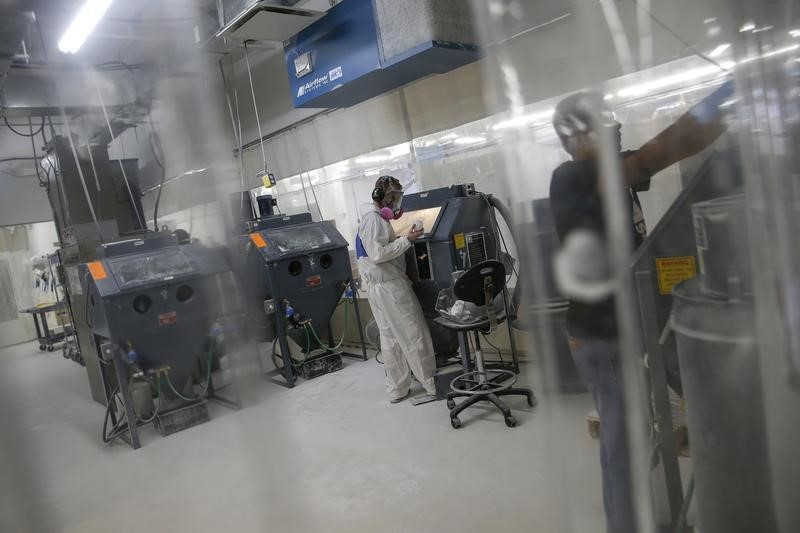PARIS (Reuters) - French industrial production was the strongest in four years in the first quarter despite a dip in March, boding well for a nascent recovery in the euro zone's second-biggest economy.
Industrial output fell 0.3 percent in March from February, dragged lower by electricity and gas production amid warm temperatures, the INSEE official statistics agency said on Thursday. Economists expected a flat reading.
However, over the whole of the first quarter, production was up 1.4 percent, the highest rate since the same period of 2011, when the economy was growing at its fastest pace since the internet bubble in early 2000.
"The probability of a strong first quarter has been on the cards since January and has become a bit more likely with the industrial production," Barclays (LONDON:BARC) France economist Francois Cabau said. "We seem to have gotten over a hump."
Adding to the improved outlook, an INSEE survey of industrial bosses released on Wednesday showed they expected to increase investment 7 percent this year, also the highest level since 2011.
The Socialist government has pinned its recovery hopes on expectations for a rebound in business investment after contracting over the last two years.
Other eurozone countries have also seen signs of recovery, with the single currency bloc benefiting from a weaker euro, lower energy costs and the roll out of the European Central Bank's money printing programme known as quantitative easing.
The improving outlook may also be beginning to yield political dividends for President Francois Hollande, whose ratings had fallen to record lows as a long-promised economic recovery proved elusive.
On the third anniversary of his election, Hollande's approval rating has climbed to 29 percent, nine points higher than a year ago, according to a CSA poll for Les Echos daily.
The French central bank has estimated that the economy grew 0.4 percent in the first three months of the year. INSEE publishes first quarter gross domestic product growth figures next Wednesday. <FRGDPP=ECI>
The government expects GDP to grow at least 1 percent this year and 1.5 percent for 2016 and 1.5 percent in 2017 -- broadly in line with European Commission estimates released this week.
On one sour note, the trade deficit widened unexpectedly to 4.58 billion euros (3 billion pounds) on increased energy imports and lower aerospace exports, data released from the customs office on Thursday showed.
Meanwhile, although the economy is showing signs of improvement, a pick up in the labour market remains elusive as companies keep trimming headcount.
Troubled state-controlled nuclear group Areva (PA:AREVA) offered a painful reminder of France's labour problems, announcing on Thursday that it may cut up to 4,000 jobs.
